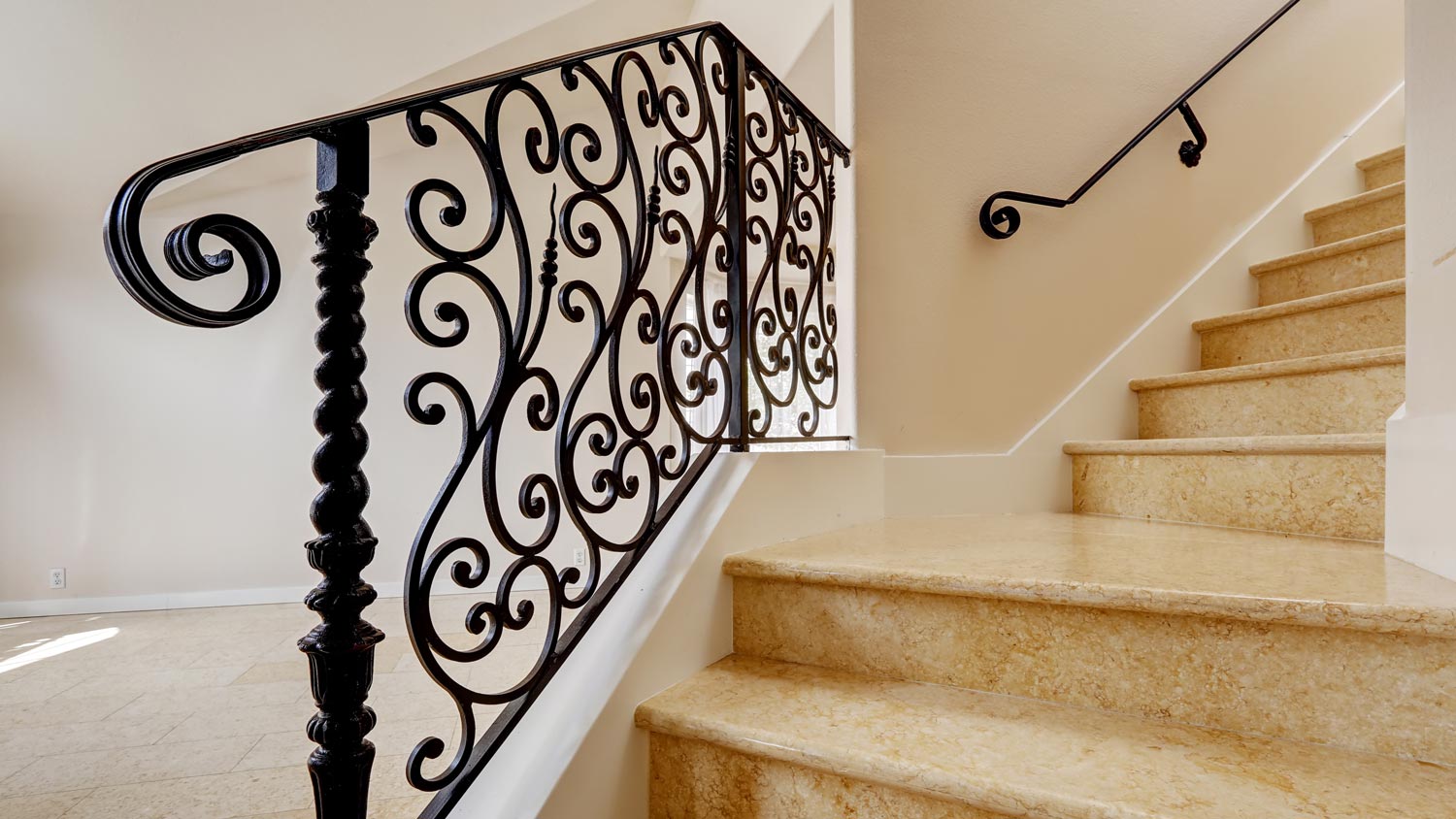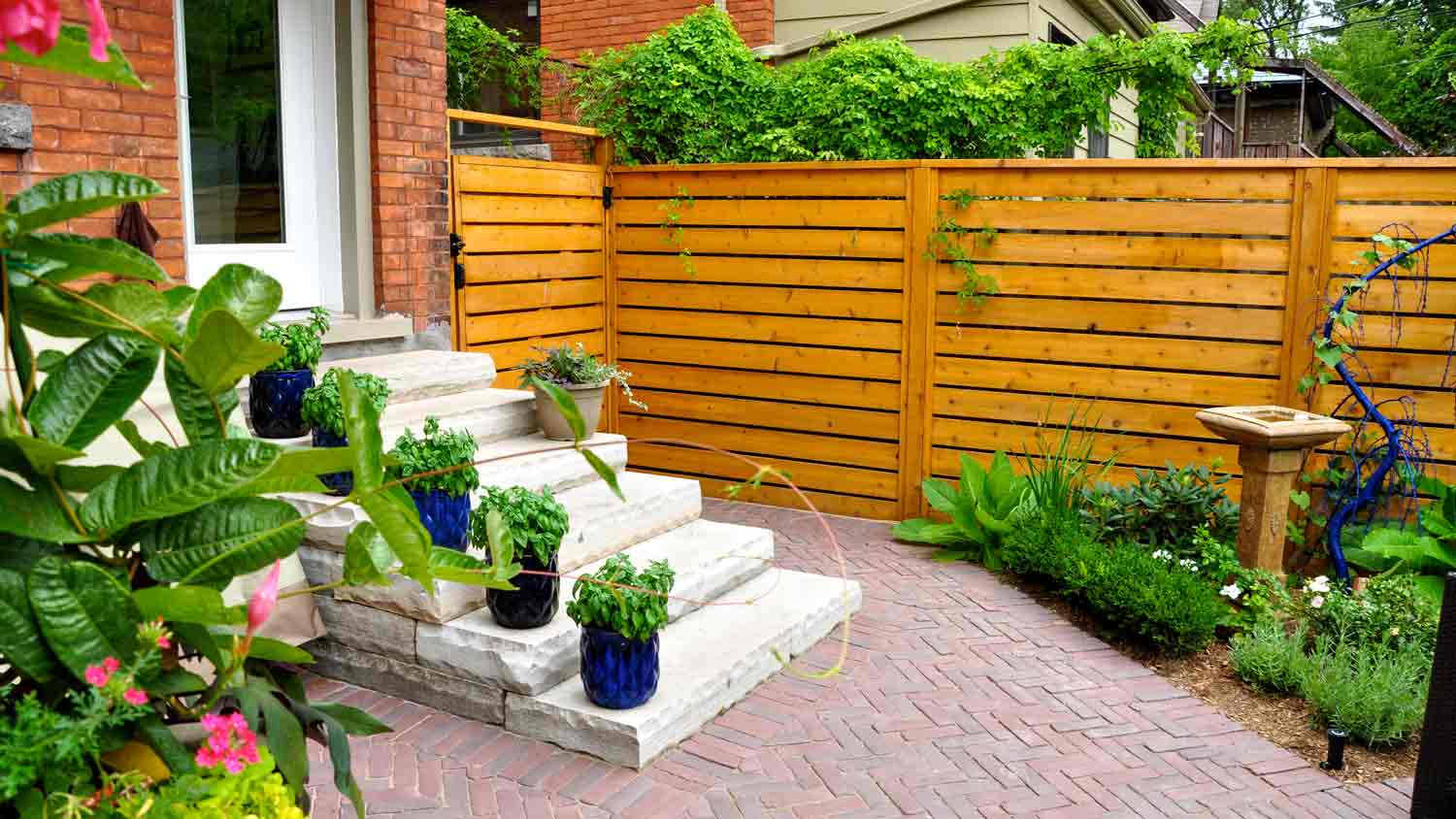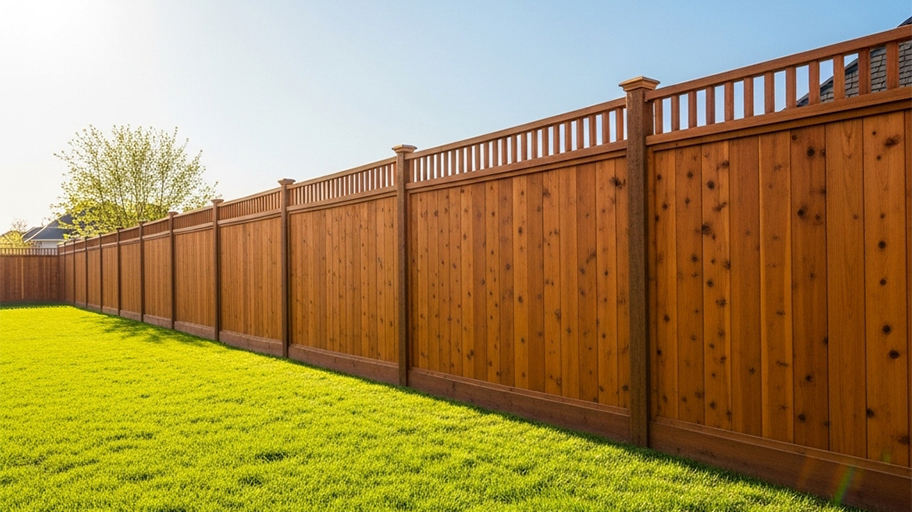
Get expert insights on wrought iron railing repair cost, including average prices, key cost factors, and tips to save on your next project.
Fencing service costs depend on your project and location. Check with a local pro for your specific job.
Phoenix's intense sun and heat require UV-resistant vinyl materials, which can increase material costs.
Desert soil conditions in Phoenix may require specialized anchoring systems.
Local permits in Phoenix cost $50 to $150 for fence installations, depending on height and location.
Vinyl fencing performs exceptionally well in Phoenix's dry climate, requiring minimal maintenance compared to wood alternatives.
Summer installation may cost more due to extreme temperatures affecting labor schedules.
As one of the fastest-growing cities in the desert Southwest, Phoenix presents unique challenges and advantages for vinyl fence installation. Vinyl fence installation in Phoenix costs about $2,707 on average, but can range from $1,810 to $3,604. Unlike wood, which can warp and crack in extreme heat, vinyl maintains its integrity year-round. However, Phoenix's intense UV exposure and occasional dust storms mean you'll want to invest in high-quality, UV-stabilized vinyl materials that can withstand over 300 days of sunshine annually.
Several factors unique to Phoenix, AZ and the Sonoran Desert influence the total cost of your vinyl fence project. Most vinyl fences cost $15 to $40 per linear foot, and Phoenix installations often fall toward the higher end of this range due to desert-specific challenges such as caliche soil and high temps. Understanding these local considerations will help you budget effectively for your fencing investment.
The costs for vinyl fencing include the fencing materials and the labor required for installation. For standard 4- or 6-foot-tall vinyl fencing, you’ll spend $15 to $40 per linear foot. Materials are $10 to $30 per linear foot, and labor charges add up to about $5 to $10 per linear foot. Depending on the condition of your property, how level your lawn is, the style of fence you choose, and add-ons such as extra gates, labor costs can increase to an additional $35 to $50 per hour.
| Fence Length (Linear Feet) | Average Cost Range |
|---|---|
| 50 feet | $750–$2,000 |
| 100 feet | $1,500–$4,000 |
| 150 feet | $2,250–$6,000 |
| 200 feet | $3,000–$8,000 |
| 300 feet | $4,500–$12,000 |
After filling Pinterest boards with custom vinyl fence choices, you’re ready to invest in a fencing system—but you need to know how much the perfect vinyl fence for your yard costs. Each manufacturer has various styles, but the privacy, three-rail (also known as a horse fence), and picket fence are the most popular vinyl fencing choices.
| Fence Style | Cost per Linear Foot | Phoenix Pros | Phoenix Cons |
|---|---|---|---|
| Privacy fence | $25–$40 | Blocks dust storms, provides shade | Can create wind tunnel effect |
| Three-rail ranch | $15–$25 | Excellent airflow, classic Southwest look | Limited privacy and dust protection |
| Picket fence | $20–$35 | Decorative appeal, moderate privacy | Dust accumulation between pickets |
| Semi-privacy | $20–$35 | Balance of airflow and privacy | More expensive than basic styles |
Are you replacing an existing fence in your yard? If you’re not a weekend warrior with the time, skills, and energy to spare, you can expect to spend $3 to $5 per linear foot on fence removal costs. Consult your fence installation pro to determine whether they can assist with this add-on service, or if you need to hire a fence removal professional before adding the new vinyl fence.
Another obstacle to consider before installing a vinyl fence is tree stumps. If there’s an old tree stump in the line of your new fence, pros will charge $100 to $150 to remove and discard it. On the other hand, a full tree removal costs an average of $750.
In Phoenix’s harsh desert climate, you’ll want to pick the right type of vinyl fencing to withstand the elements. High-quality vinyl fencing is specifically formulated with UV stabilizers, such as titanium oxide, to withstand intense sun exposure. These additives significantly reduce discoloration, yellowing, and brittleness over time, helping fences maintain structural integrity under prolonged heat waves. While lower-grade vinyl may degrade more quickly, high-grade UV-protected vinyl fences often last 20 to 30 years, with some installations potentially reaching 50 years with proper maintenance. These materials are routinely used in the region to avoid premature fading and cracking in 110°F+ summer conditions.
In Phoenix, AZ, obtaining a fence permit costs a minimum of $150. This flat rate applies to most residential fence projects, especially those with a total estimated value under $1,000. For projects valued between $1,001 and $10,000, the city calculates the permit fee using a valuation-based formula: $150 plus $9 for every additional $1,000 in project value. For example, a $5,000 fence installation would result in a permit fee of about $186. In addition to the permit fee, Phoenix also charges a plan review fee equal to the permit amount, with a minimum of $150.
Most homeowners can expect to pay at least $300 total when accounting for both permit and review fees. The process also includes two standard inspections—footing and final—at no extra cost beyond the initial fee. While permits are required for fences taller than 3 feet, projects under this threshold may be exempt, depending on local zoning regulations.
Phoenix fence contractors charge around $5 to $6 per linear foot in labor fees for fence installation. The city’s unique climate and soil conditions require experienced pros who understand desert installation challenges. Caliche hardpan soil can break standard drilling equipment, extreme temperature swings affect material expansion, intense UV radiation degrades inferior materials within years, and seasonal monsoons create flash flooding and high winds.
Experienced pros know to dig post holes deeper than standard specifications due to the area's sandy soil and occasional flash flooding during monsoon season. They understand which vinyl formulations resist UV degradation in Phoenix's 300-plus days of annual sunshine, and they carry specialized hydraulic equipment designed to penetrate the concrete-hard caliche layer found throughout much of the Valley. Additionally, seasoned professionals schedule installations during optimal weather windows, avoiding the extreme summer heat that can make vinyl panels difficult to handle and potentially warp during installation.
Local fence contractors often include caliche drilling costs in their standard estimates rather than charging an explicit add‑on. If a project requires noticeably deeper holes or unusually rocky terrain, contractors may adjust pricing accordingly. Summer installations may cost more due to extreme heat conditions that affect work schedules.
Installing a vinyl fence in Phoenix can add measurable and perceived value to your home by enhancing safety, functionality, and curb appeal—key factors that influence buyer interest and resale price. While national data suggests homeowners typically recoup around 50% of a vinyl fence’s installation cost at resale, a number of factors suggest vinyl fencing is particularly attractive to Phoenix buyers. In Phoenix’s hot, UV-intense climate, vinyl fencing stands out for its durability and low maintenance needs, making it a preferred choice over wood or metal alternatives that may warp, rust, or require frequent upkeep.
From a safety perspective, vinyl fencing creates secure boundaries for children and pets, a feature especially valued in homes with pools and family-friendly neighborhoods. While privacy fences cost more upfront, they also reduce visibility from the street, improving home security and limiting access from unwanted visitors. In terms of efficiency, vinyl’s long-lasting material resists fading and cracking even under Phoenix’s intense sun, meaning less frequent repairs or replacements—saving homeowners time and money over decades of use.
Home is the most important place on earth, which is why Angi has helped more than 150 million homeowners transform their houses into homes they adore. To help homeowners with their next project, Angi provides readers with the most accurate cost data and upholds strict editorial standards. We survey real Angi customers about their project costs to develop the pricing data you see, so you can make the best decisions for you and your home. We pair this data with research from reputable sources, including the U.S. Bureau of Labor Statistics, academic journals, market studies, and interviews with industry experts—all to ensure our prices reflect real-world projects.
Want to help us improve our cost data? Send us a recent project quote to [email protected]. Quotes and personal information will not be shared publicly.
From average costs to expert advice, get all the answers you need to get your job done.

Get expert insights on wrought iron railing repair cost, including average prices, key cost factors, and tips to save on your next project.

Get a clear estimate of wood fence repair costs. Learn what impacts price, compare repair types, and find tips to save on your next fence project.

Shadowbox fencing can boost your home’s appearance and privacy. Use this guide to learn how much it costs to install a shadowbox fence based on factors like material, length, and height.

Do you need a permit to build a fence? Our guide can help you determine the local legal requirements you must follow for fence construction.

There are a lot of different types of farm fencing. Find the one that’s right for your property with our handy guide.

Did you know you can extend the height of your fence for more privacy? Read on to learn how to make a fence taller.